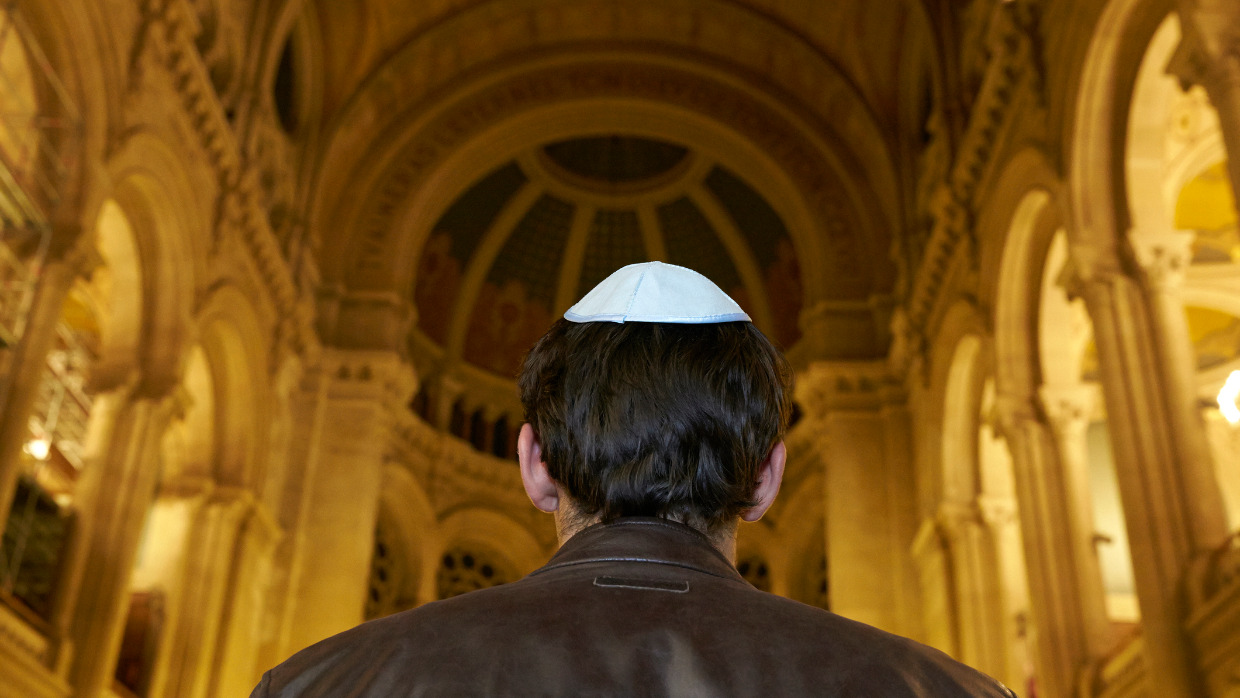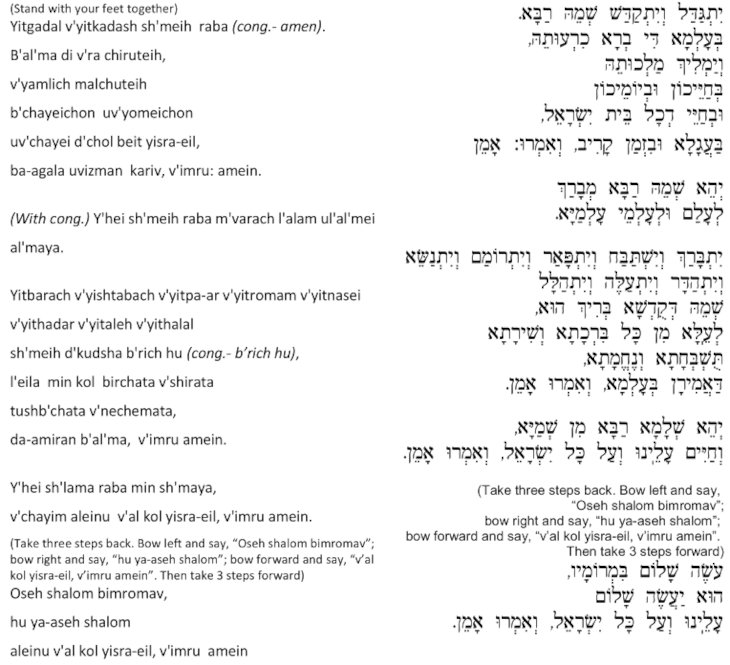 Iran’s Attack on Israel
Iran’s Attack on Israel


6 min read
15 min read
4 min read
8 min read
7 min read
The Mourner’s Kaddish is one of a number of important prayers said in the merit of the departed.
In common usage, when people talk about a "Jewish Prayer for the Dead," they’re usually referring to the "Mourner's Kaddish.”
Except that the Mourner’s Kaddish isn’t a prayer for the dead.
The Mourner’s Kaddish doesn’t mention death or the souls of the departed, rather it is an inspiring plea for God to reveal His ways, and people in mourning say it as a spiritual merit for the souls of their loved ones (which may be the source of the confusion). Judaism does have specific prayers for the dead, and that includes Keil Maleh Rachamim (Oh God, Who Is Full of Mercy), which is part of the Yizkor Service that’s said on Yom Kippur and other major holidays (it’s also said at other times).
See below for an explanation and translation of Kaddish, as well as links to other Jewish prayers that are said on behalf of the dead.
The Mourner’s Kaddish is one of a number of different forms of Kaddish, and it is recited daily during the first year following the loss of a parent, or for the first 30 days following the loss of a sibling, spouse, or child. It is also said once a year on the Yahrzeit, or anniversary of a person’s death.
“Kaddish (קדיש)” is an Aramaic word that means "Holy," and the Kaddish prayer is a plea for God's purpose for creation to become revealed and obvious to everyone. In Jewish thought, God created the world for your benefit and pleasure—the greatest pleasure being a relationship with Him1—and He put you in a world where you have the freedom and independence to choose that relationship.
But living with that awareness is challenging, and the essence of “holiness” is keeping that ideal in focus. Reciting Kaddish, especially while in mourning, is a reminder—despite the challenges and struggles most people endure throughout their lives—that there's meaning to why the world looks like it does, and that God's ultimate purpose, even if that's not obvious now, is for good.
Kaddish is centered around the phrase, “May His Great Name Be Blessed (יהא שמיה רבא מברך),” and according to the Talmud,2 it should be said with the utmost concentration and intent, as you’re acknowledging your commitment to the message and meaning of Kaddish.
Other types of Kaddish include the Half Kaddish and Full Kaddish, which are integral parts of the daily liturgy; the Rabbi’s Kaddish, which is said after study; a special Kaddish that’s recited at funerals; and others.
A person mourning the loss of a parent says the Mourner’s Kaddish every day for 11 months—in a synagogue,3 as part of the daily prayer services—and that count starts from the time of burial.4 The mourner then continues saying the Mourner’s Kaddish once a year, on the Yahrzeit—or anniversary of the deceased’s death—every year for the rest of his life.
A person mourning the loss of other close relatives—like a sibling, child, or spouse—says the Mourner’s Kaddish every day for the first 30 days following burial.
“Yahrzeit” is a Yiddish word that colloquially5 refers to the anniversary of someone’s death. The date of the yahrzeit follows the Jewish calendar, starts from sundown, and ends at sundown the following day. In addition to reciting the Mourner’s Kaddish each year on a person’s yahrzeit, other customs include:
Click here to find out the date of a yahrzeit.
The Yizkor Service, or Memorial Prayers, are said four times a year—Yom Kippur, the last day of Passover, the second day of Shavuot, and Shemini Atzeret (a separate holiday at the end of Sukkot)—and is an opportunity to say a short prayer in the merit of the deceased, as well as to give charity.
The Yizkor Service was originally only said on Yom Kippur (in Hebrew, Yom Kippur is also referred to as Yom HaKippurim, the day of atonements, in the plural, which hints that the day’s atonement is for both the living as well as the dead), but was later extended to include the other holidays as well.
The prayer, Keil Maleh Rachamim (Oh God, Who Is Full of Mercy), is also said as part of the Yizkor Service. It is said in the merit of the deceased, and includes a formula to make a charitable pledge.
Go here to learn more about the Yizkor Service as well as a link to a translation and transliteration of the service’s different prayers.
May His great name grow exalted and sanctified (congregation says: Amen) in the world that He created as He willed. May He give reign to his Kingship in your lifetimes and in your days, and in the lifetimes of the entire family of Israel, swiftly and soon. Now respond: Amen (congregation says: Amen).
May His great name be blessed forever and ever.
Blessed, praised, glorified, exalted, extolled, mighty, upraised, and lauded be the name of the Holy One, Blessed is He beyond any blessing and song, praise and consolation that are uttered in the world. Now respond: Amen (congregation says: Amen).
May there be abundant peace from Heaven and life, upon us and upon all Israel. Now respond: Amen (congregation says: Amen).
He who makes peace in His Heights, may He make peace up us, and upon all Israel. Now respond: Amen (congregation says: Amen).

Click here if you would like to pay someone to say Kaddish for a loved one.

The print size on this is too small for me to read. How can it be enlarged?
Upon a person saying the Kaddish prayer, all extraneous prayers should be stopped with the exception of someone saying the Amidah to themselves and they must continue forward with what they are praying with NO interruption. The essential part of the Mourner's Kaddish as it is often referred to as is in fact, centered around the phrase, “May His Great Name Be Blessed (יהא שמיה רבא מברך),” and according to the Talmud, it should be said with the utmost concentration and intent, as you’re acknowledging your commitment to the message and meaning of Kaddish. Many people have memorized this phrase and likewise have closed their eyes to give them even added concentration